When you're pouring your heart and creativity into a book proposal, receiving a rejection can feel like a hefty blow. It's important to remember that every successful author has faced similar hurdles on their journey. Rejections are often not a reflection of your talent, but merely a mismatch with the publisher's current needs or focus. If you're curious about how to navigate this process and turn setbacks into stepping stones, read on for some insightful tips and encouragement!
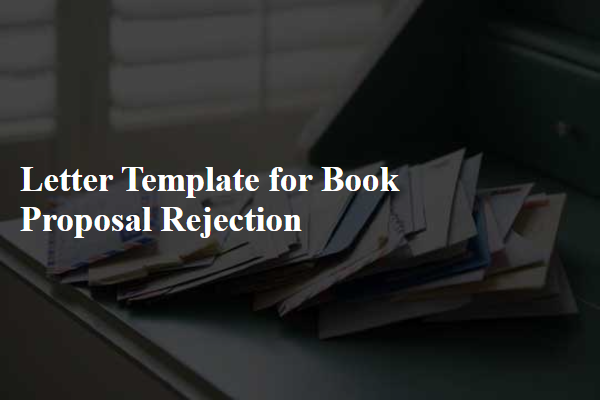
Professional and respectful tone
A book proposal rejection letter typically maintains a professional and respectful tone while providing feedback. In crafting one, it's important to express gratitude for the submission, acknowledge the effort put into the proposal, and offer feedback if possible. Acknowledge the uniqueness of the work and encourage future submissions or reiterate the openness to review other ideas. While this isn't a direct letter sample, you can consider focusing on key feedback points, like market fit, writing quality, or audience engagement, and maintaining a positive, encouraging ending. This approach helps maintain a positive relationship with the author.
Gratitude for submission
The book proposal submitted for consideration has been thoroughly reviewed, showing great potential and originality. The proposal presents a unique concept that addresses contemporary themes, enhancing its relevance in today's literary landscape. While the piece demonstrated creativity and strong narrative elements, it does not align with our current publishing focus or strategic vision. We genuinely appreciate the opportunity to explore this work and thank you for your submission. Your dedication to craft and storytelling is commendable, and we encourage you to continue pursuing publication elsewhere.
Brief reason for rejection
Receiving a book proposal rejection often feels disheartening, yet it can offer valuable insights for future submissions. The primary reason for rejection usually revolves around misalignment with the publisher's current focus or market trends. For instance, if a publisher specializes in contemporary fiction and a proposal focuses on historical romance, the disparity in genre can lead to an automatic dismissal. Alternatively, a proposal may demonstrate engaging writing but lack a unique hook that distinguishes it from similar works already available on the market. Understanding these nuanced factors can aid authors in refining their pitches and identifying suitable publishing partners for subsequent attempts.
Encouragement for future submissions
A thoughtful rejection letter often highlights the merits of a book proposal while providing constructive encouragement for future submissions. Prospective authors may receive feedback emphasizing the originality of their concept, the uniqueness of their narrative voice, or the strength of their character development. This positive reinforcement can serve as motivation, suggesting that while the proposal may not fit the specific needs of the publisher at this moment, the author's talent is evident. Publishers may express eagerness to see future projects, encouraging the author to refine their work or explore new ideas. Maintaining an open line of communication fosters a sense of community and potential collaboration within the literary world.
Best wishes for success
A proposal for a book often undergoes scrutiny by literary agents or publishers, leading to varying outcomes. A rejection letter typically acknowledges the author's effort while conveying the decision not to proceed. The process, often competitive, involves examining content, marketability, and author credentials. Agents, working from notable publishing houses, evaluate numerous proposals, focusing on a distinct voice, originality of idea, and alignment with current trends. Despite the rejection, the letter frequently concludes with best wishes for future success, encouraging the author to continue pursuing their literary passions.

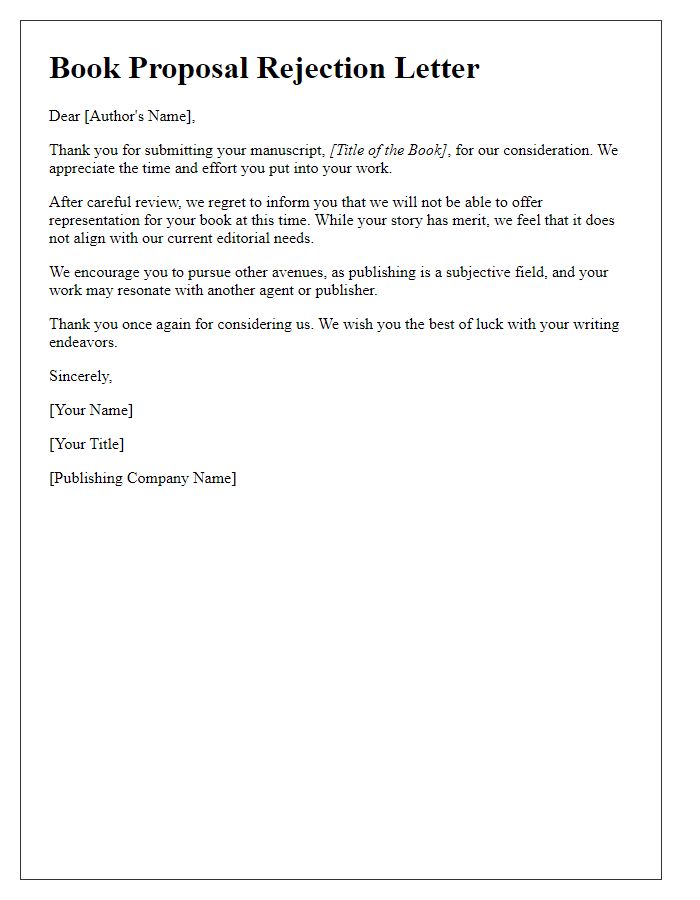
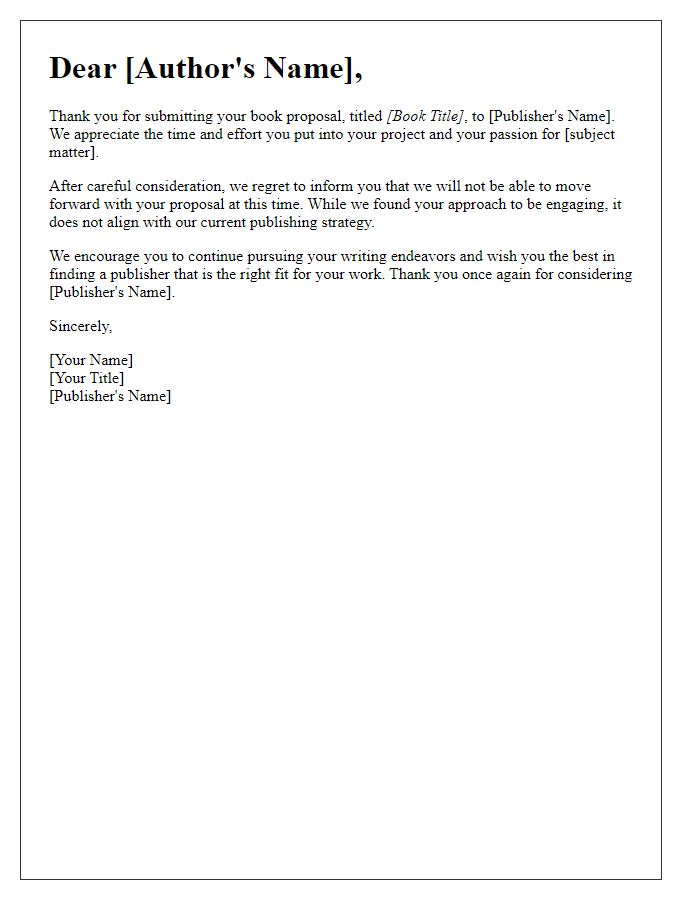
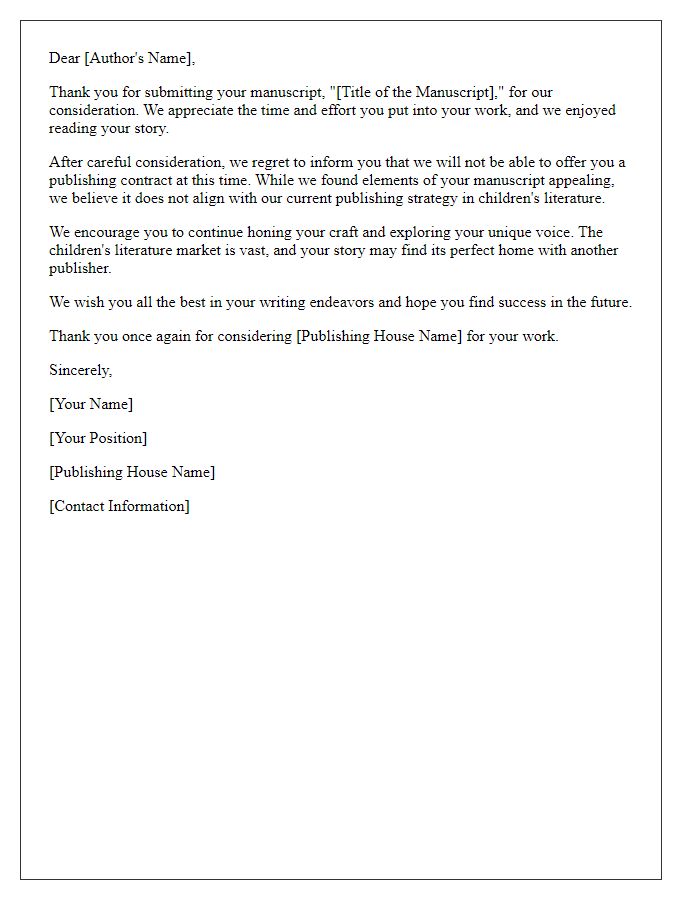
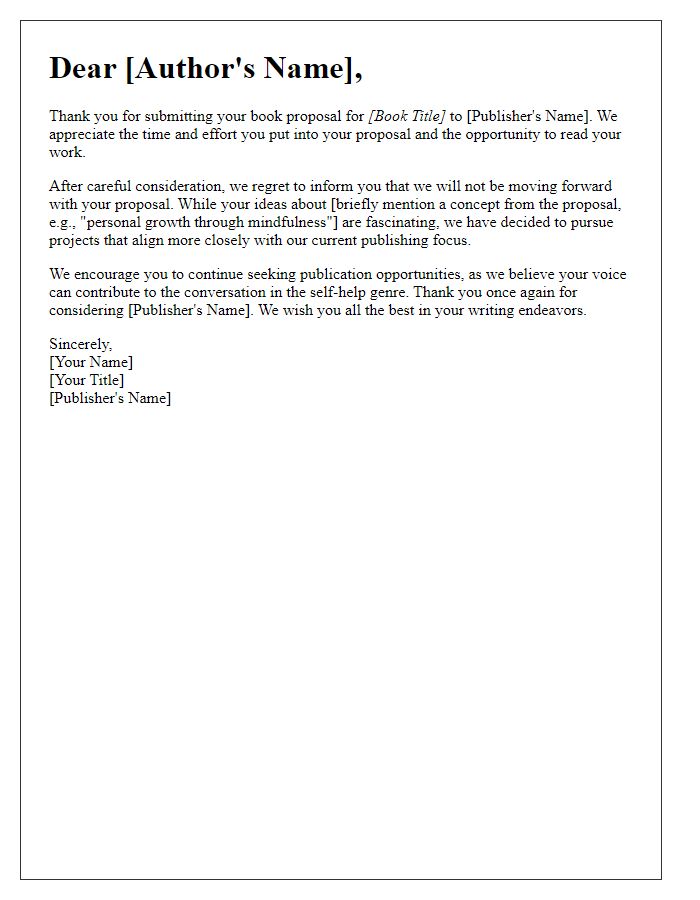
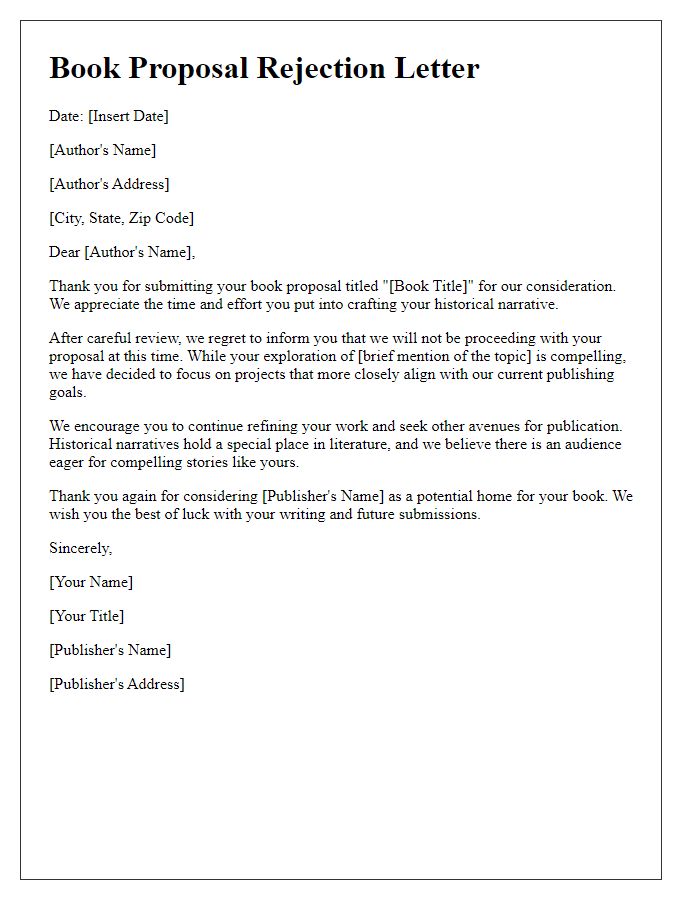
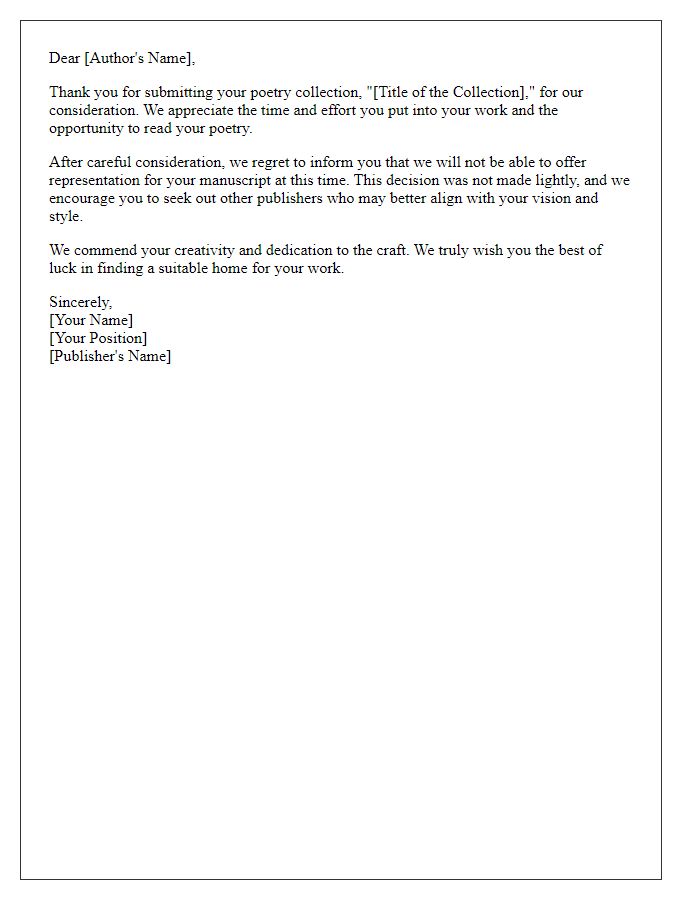
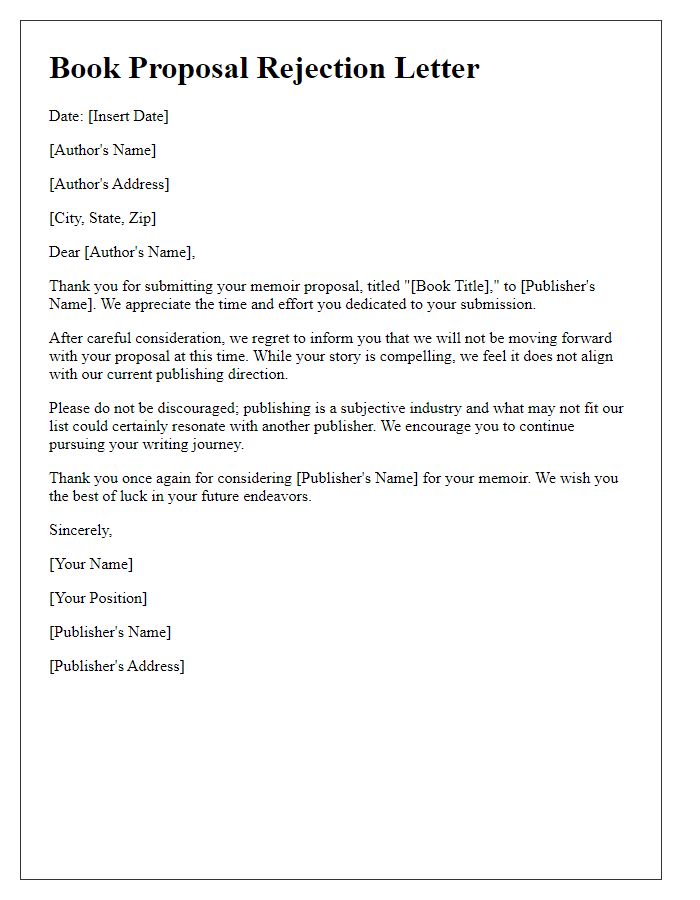
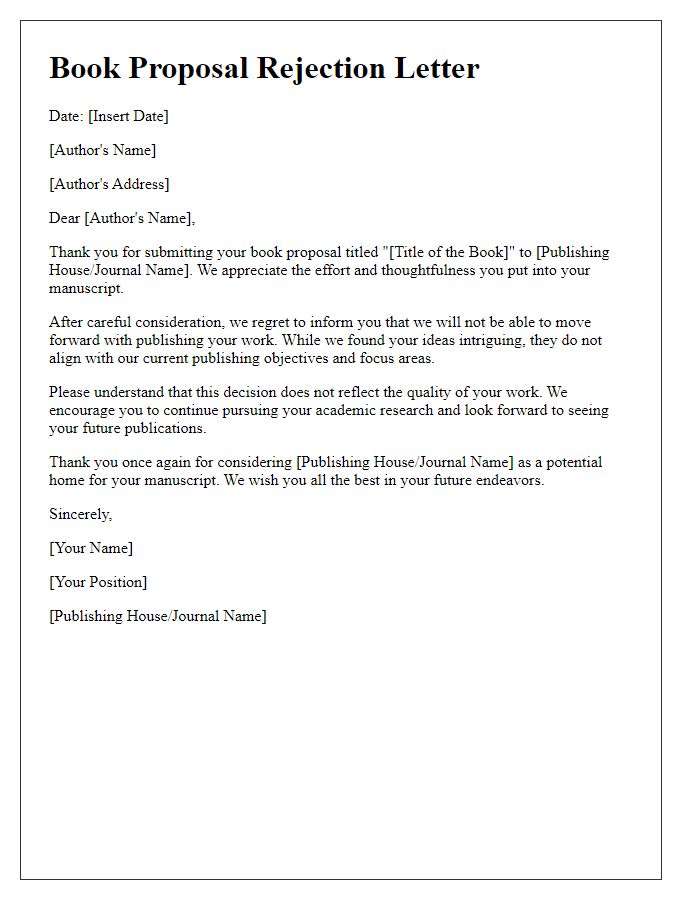
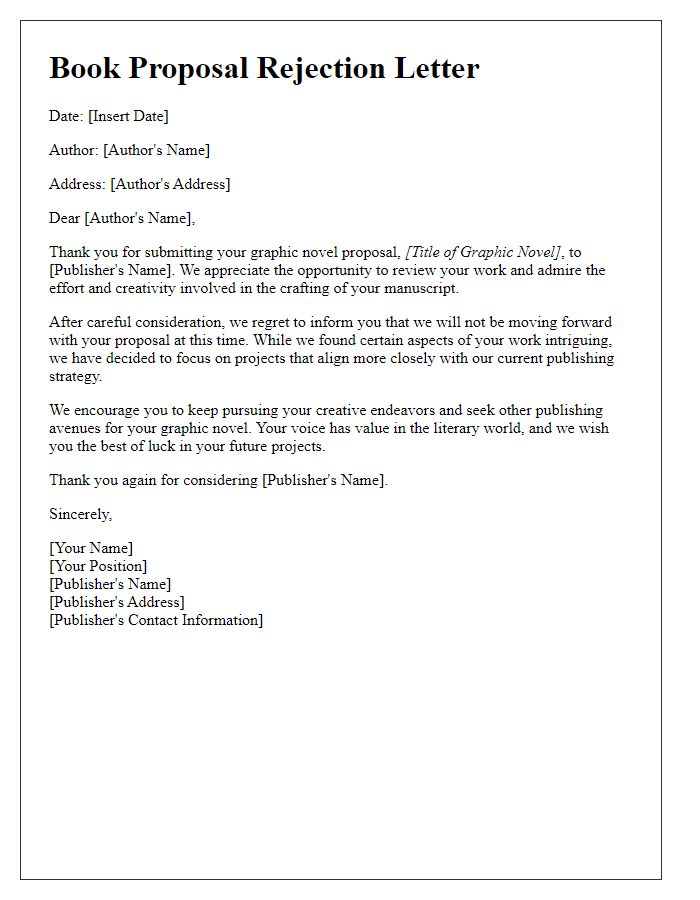
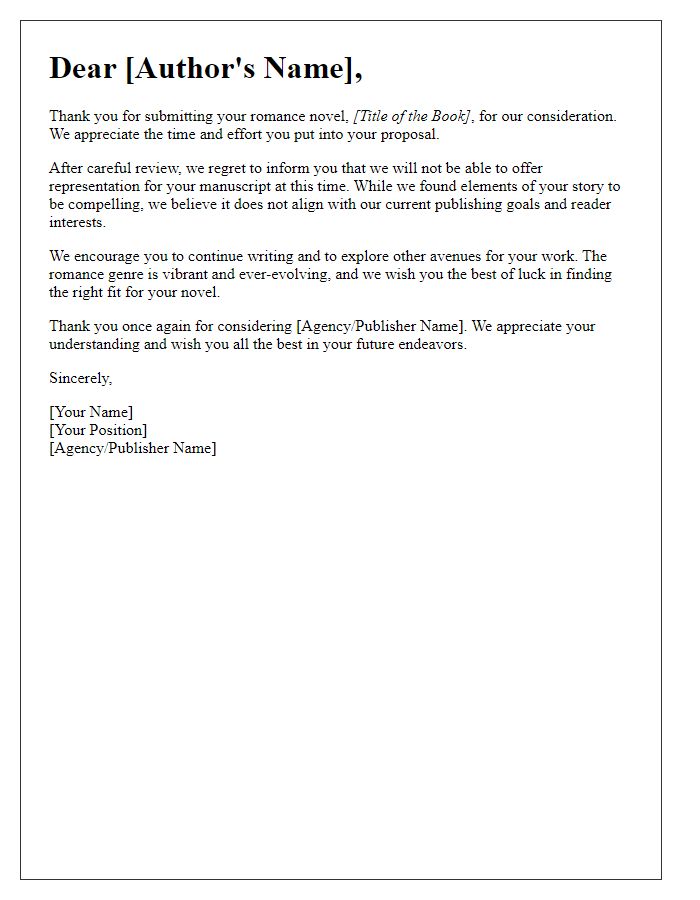

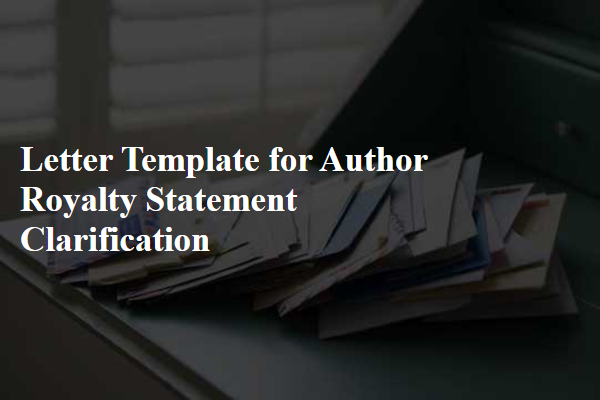
Comments